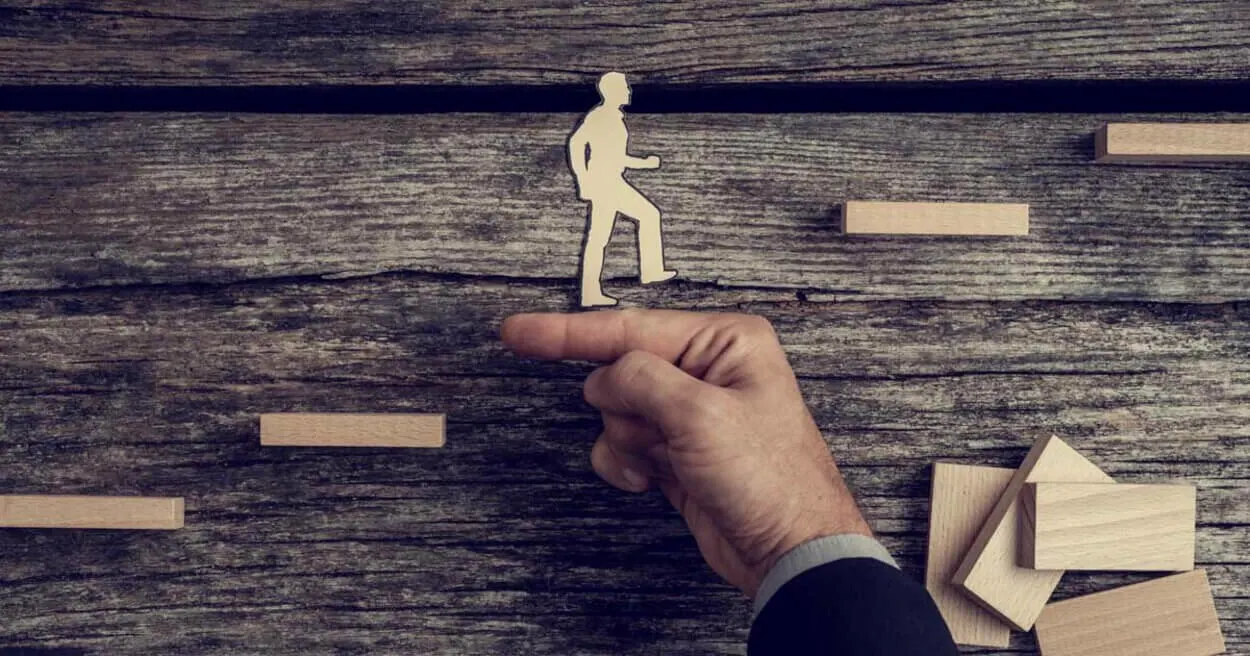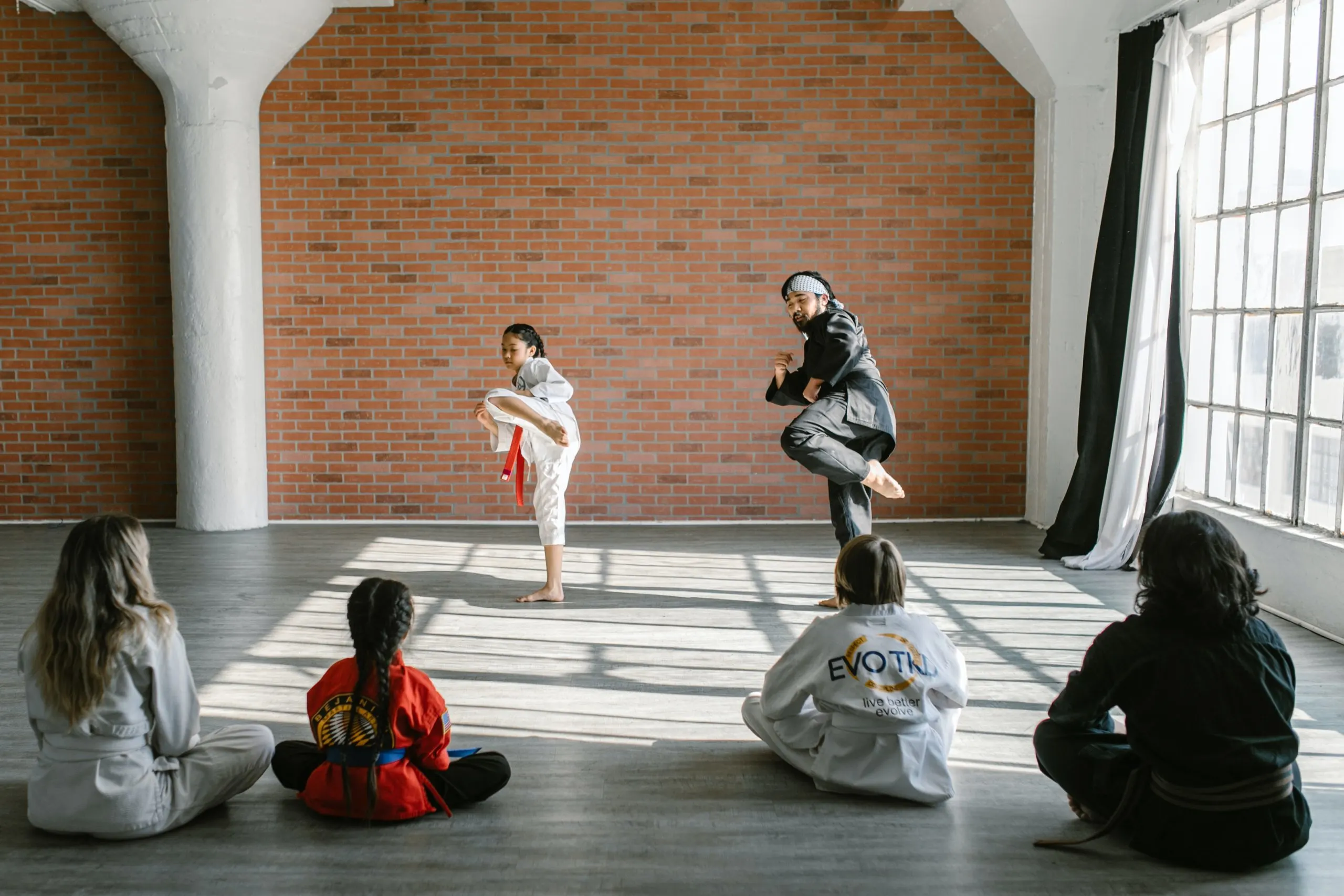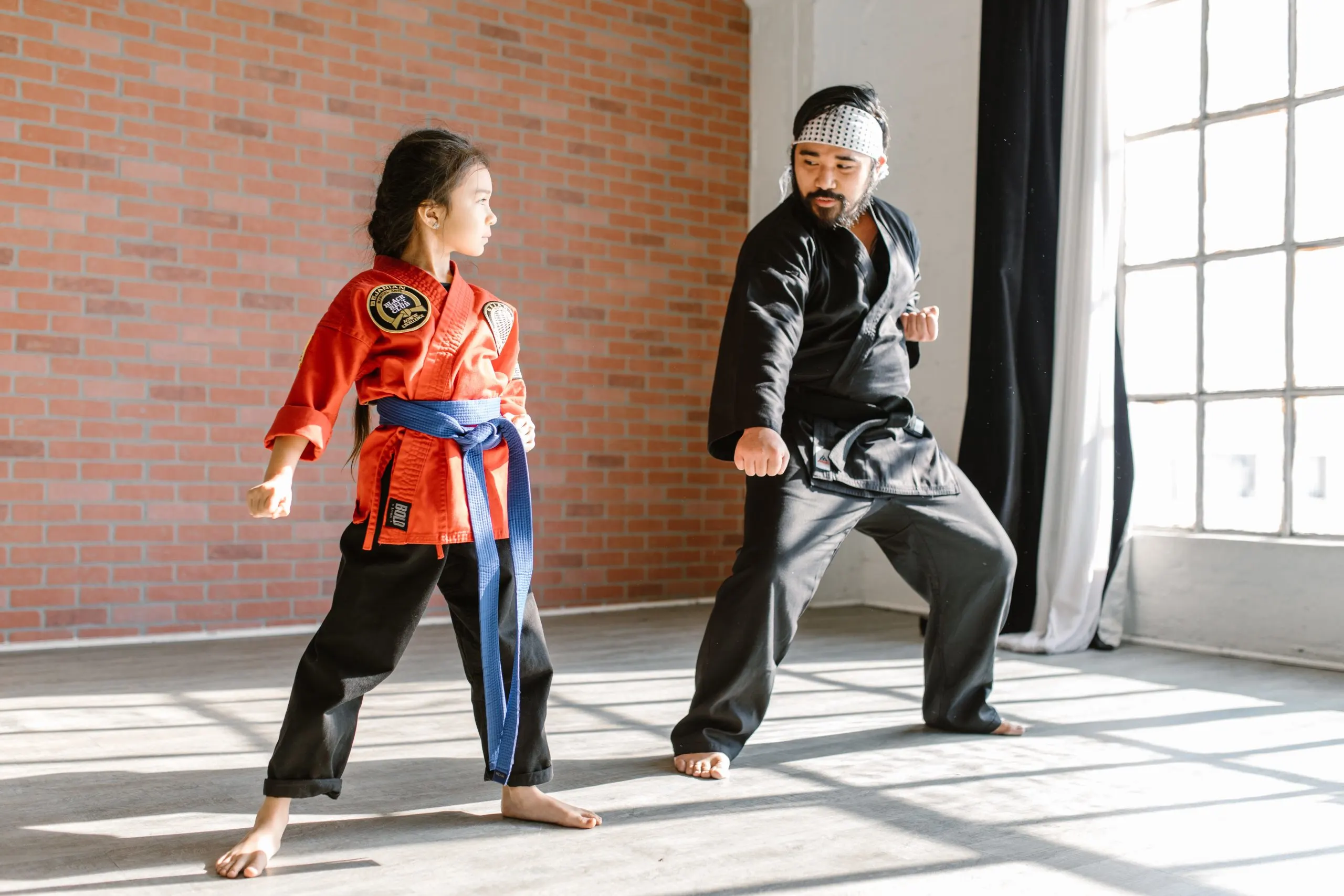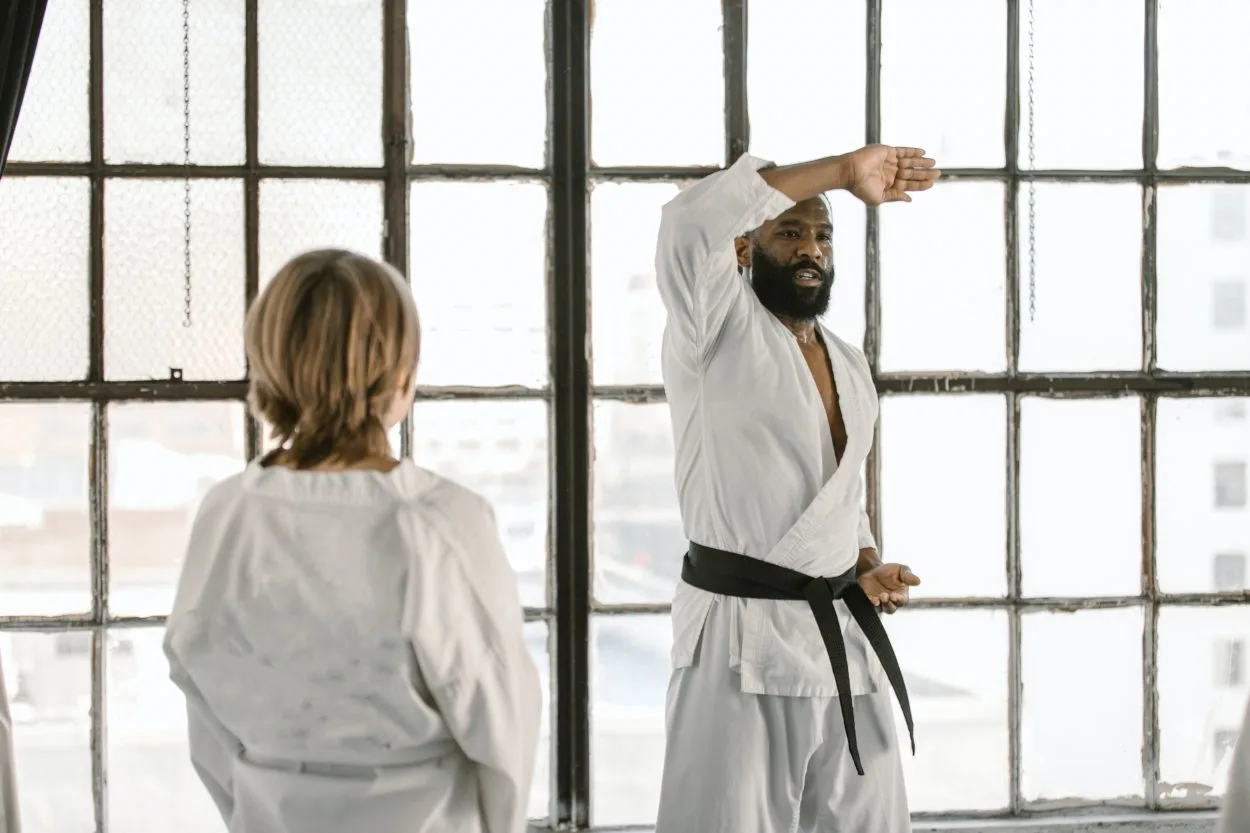In its most basic sense, sensei refers to a teacher and a shishou refers to a master.
In martial arts, there are many titles of honor. The only way to get these titles is to get the coveted rank of black belt first.
In other words, getting a black belt does not give you the right to call yourself a Sensei or a master. Depending on where they come from (Japan, Korea, Thailand, China, Brazil, or the Philippines), the names of each martial art have different but similar meanings.
But what is the true meaning behind these words, and how can we distinguish the difference between them? Scroll down and read further as I cover both of these words to help us understand them better.
What does Sensei mean?

Sensei is often specified for practitioners of art (e.g., martial arts), but shisho or shishou refers to “masters” in a variety of professions, including martial arts, gardening, cuisine, painting, calligraphy, etc.
Sensei is a Japanese-origin word that implies “one with profound knowledge” or “teacher,” and it is a term of respect for addressing one’s teacher in any discipline, such as music, linguistics, mathematics, or even athletics, since instructors are recognized to have mastered their particular area of study.
The word sensei might also be used to refer to expert cooks who have spent years perfecting their art. This study suggests that the sensei establishes strong associations with his pupils, instructs and educates them, and fulfills the paternal role.
Sensei: Definition, Usage, and Cultural Significance
One common definition of ‘Sensei’ is present in Merriam-Webster: “a person who teaches martial arts, usually in Japan (such as karate or judo).”
However, sensei is always used from the student or trainee’s viewpoint. Nobody would ever refer to oneself as sensei. Instead, they would use the phrase for their profession, such as kyoushi for a teacher.
In Japanese, “sensei” is used to refer to someone who is a master in their field or has a specific degree, such as ikebana (traditional flower arrangement), teachers, physicians, and even attorneys. Therefore, while seeing a doctor in Japan, you would refer to Doctor Yamada as “Yamada-sensei.”
What is Shishou in Japanese?

Shishou is one of the Japanese terms meaning master and is used in a variety of fields, including martial arts, gardening, cuisine, calligraphy, and painting.
Unlike sensei, which may be used with any teacher or professional with knowledge in his or her field of specialization, shishou is reserved for those who have achieved near-mastery of their talent in the aforementioned field.
Is Shishou a master?
Yes, shishou is a master, as mentioned earlier in this article, a master of martial arts or martial arts instructor.
Shishou is directed at someone who is an expert in any field. One more of the names given to those who teach martial arts is shishou.
Shisho and shishou are both terms for the same sort of person in traditional Japanese society, hence there is no distinction between them.
However, sensei may be more prestigious because it was originally an old Chinese phrase for inner person, and it was introduced to Japan by Buddhist monks as a method to show respect at the time when samurai were at the pinnacle of their authority.
What’s higher than a sensei?

The term sensei, which may also be translated as instructor or teacher, is more formally referred to as Shihan, which literally means “to be a model.”
Therefore, whether you are a teacher of karate or any other martial art or even a career that is not related to martial arts, you are eligible to be called shihan. On the other hand, it is generally reserved for more experienced professors or instructors.
Shihan is a much more sophisticated word for experienced and skilled teachers or instructors.
At the Godan level (5th dan and above), a sensei has reached the senior levels, at which they may be referred to as Shihan. Nevertheless, addressing a senior teacher as sensei, even if he is an 8th or 9th dan, is not going to be seen as unfriendly or rude by anybody.
Here’s a quick comparison of sensei and Shihan:
| Sensei | Shihan |
| Sensei technically refers to “one who has gone before,” but it is often used to refer to a teacher. | In Japan, “sensei” is sometimes used to refer to anybody proficient in acquiring and transferring information, although its value should not be diminished. |
| In Japan, “sensei” is sometimes used to refer to anybody proficient in the acquisition and transfer of information, although its value should not be diminished. | Shihan is often designated for professors or teachers with greater expertise. You are thus entitled to be called “Shihan” whether you are an instructor of karate, another martial art, or even a profession unrelated to martial arts. |
| This applies to instructors from elementary through college. It includes dancing and karate teachers. | Shihan is a much more sophisticated word for experienced and skilled teachers or instructors. In most cases, a Shihan is an extremely well-rounded individual. |
| A sensei is not just a teacher, but also someone very wise has a lot of authority, and knows many things. | A Shihan has mastery of the content and can utilize this knowledge to adapt and take the initiative. |
Which is higher: a Senpai or a Sensei?

One distinctive aspect of Japanese culture is the importance put on the relationship between two individuals and how it influences their interactions. Senpai is a term for an older, more experienced person who is willing to help and guide younger people. It is pronounced “sen-pie,” like baked goods.
This applies to students, athletes, workplace colleagues, and even professionals. In reality, a person who is regarded as a sensei by their pupils may have a senpai to whom they turn for professional counsel and direction.
Hence, sensei is much higher than senpai, as sensei is a teacher, and a senpai is a senior person after the teacher.
The concept of older pupils (called senpai in Japanese) teaching younger students (called kohai in Japanese) has its roots not in the practice of martial arts as such but rather in Japanese culture and Asian culture in general. It is the foundation of interpersonal connections in Japanese society, including those in the workplace, the classroom, and the athletic arena.
It is now routinely included as a component of the curriculum at schools of Japanese martial arts. A senior student is considered to be senior to any and all pupils who started their training after them or who are ranked higher than them.
What belt rank is Sensei?
A sensei may be any teacher who has achieved the level of Yudansha (black belt). On the other hand, some beginner teachers are given the title of Sensei-dai, which literally translates to instructor helper.
One honorific title that is often bestowed is “Shihan,” which literally translates to “excellent teacher.” For reference, you can visit this study.
Difference Between a Sensei and a Shifu
Shifu is basically called in Chinese and serves the same purpose as sensei.
Shifu is synonymous with sensei, which refers to a competent individual or a master of a certain profession. In current usage, it is one of several terms used to refer to those in specialized professions and a phrase used by an apprentice in Chinese martial arts to describe their instructor.
How can you become a sensei?

A sensei is up-to-date and maintains credentials in first aid, teaching abilities, and successful management methods. A successful sensei has great interpersonal skills and the capacity to “guide” others. He is able to establish and sustain successful and harmonious partnerships.
I believe that my sensei right now is anybody who crosses my path, regardless of whether or not they practice martial arts. I want to walk away from every person and every event in my life, having gained some knowledge, whether it be positive or negative. That is my viewpoint, and you are free to agree or disagree with it as you see fit.
I really hope that your sensei lives up to all of your expectations. If you don’t, I hope you find one that you can be content with and from which you may gain a lot of knowledge in the future.
Conclusion
- The word “sensei” shows respect for someone’s position in society, job, or skill. As a sign of respect, someone like a doctor, a good writer, or a teacher might be called “sensei.”
- Shishou, on the other hand, is more of a master. In certain disciplines (particularly traditional martial arts), there is a master/disciple connection rather than a teacher/student one. The student refers to the teacher as “Shishou.”
- ‘Shifu’ is a Chinese term with the same meaning as ‘Sensei’ in Japanese, which refers to a competent person or a master in a particular profession.
- Sensei refers to a higher-ranking individual than senpai. Ranking below a senpai is a kohai.
- In a nutshell, both sensei and shishou may be used to refer to the teacher, but “shishou” or “shisho” exclusively refers to the martial arts instructor.

